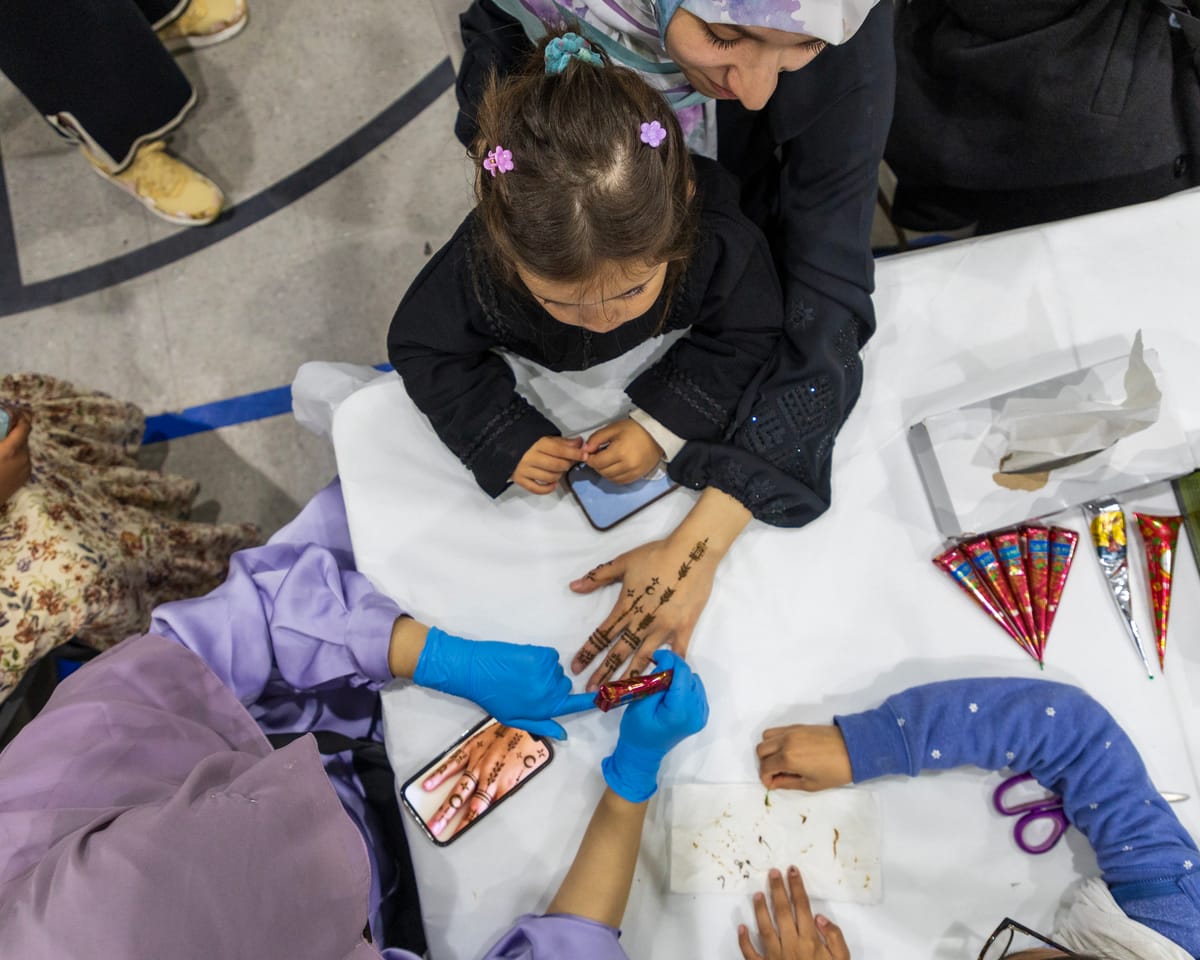Socializing while sober: How some Wichitans are cultivating alcohol-free communities
Want to have fun and meet new people without drinking? Meet some of the folks involved in local sober groups.
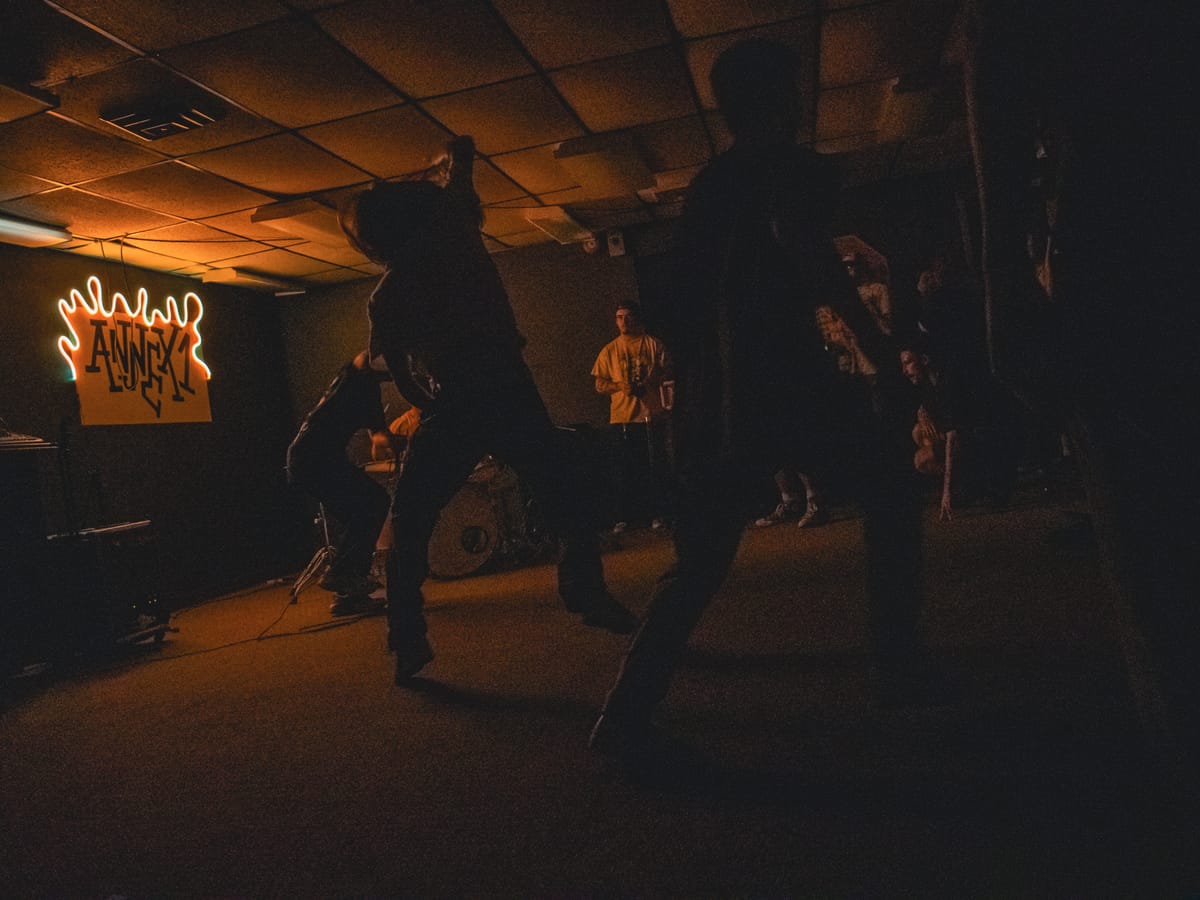
When you hear the word “sober,” you might think of folding chairs and church basements, both hallmarks of Alcoholics Anonymous meetings. But while AA is valuable for many, it’s not the right fit for everyone, and it certainly isn’t the only sober space. From coffee meetups to straight-edge, all-ages music venues, some Wichitans are cultivating different kinds of sober communities.
Tori Provencio is one. She’s the organizer behind Sober Peeps ICT, a group that hosts a monthly meetup in the space next to Reverie Coffee Roasters.
“There really wasn’t a community here in Wichita that I felt like that served that gray area of drinking," she says. "It was either all or nothing, AA or nothing.”
For some individuals, not drinking alcohol is a straightforward health choice, but for others, it can be a significant, life-changing step. You don’t have to hit rock bottom to change your relationship with alcohol. Many people cut ties because it simply doesn’t serve them anymore.
“It was using all of my personal resources. I was staying up too late, I was sleeping in the next day, I was recovering from the hangovers all week long, I was spending too much money, all of these resources were being wasted on that. And so once that was not where all my resources were going, I was able to put those resources into my personal life and goals,” says Morgan Waugh. The co-owner of Cloud Studios, a Wichita day spa, has been alcohol-free for the last four years. “I kind of started focusing on my mental health at that point. But then, it turned into wanting to take care of my physical body as well.”
When it comes to decreasing the prevalence of alcohol in social and creative spaces, there’s room for everyone. As awareness grows, so do the choices for those who don’t drink alcohol or want to limit their intake. Frequency of alcohol use and the prevalence of binge drinking have steadily declined, particularly among young adults. Among younger generations, reported alcohol use has plummeted. Between 2002 and 2021, the prevalence of alcohol use in the past 30 days among 16- and 17-year-olds decreased by 58 percent. Among 14- and 15-year-olds, it fell 69 percent, according to the National Institute on Alcohol Abuse and Alcoholism.
“(Quitting drinking) was really eye-opening. There were people in my life that I just never spoke to ever again.” — Morgan Waugh
“I’ve really seen this shift in the community here. Restaurants and bars and other businesses (are) really starting to implement more of a mocktail menu,” Waugh says. As early as age 5, she says she realized she wanted an extraordinary life, one that offered more than the lives of the adults around her. Eventually, she realized alcohol was impeding her ability to reach that goal.
Today, you can step into most restaurants or bars and find a mocktail or zero-proof menu. Sober, spirit-free, straight edge, sober-curious, clean, designated driver — there are countless labels to describe the choice to be alcohol-free, on an ongoing or temporary basis. The commitment may vary, but the surge in sobriety is unmistakable, and it has created a need for spaces and events designed for non-drinkers.
For Jenny Pierce, being sober started as a casual health choice.
“I had my last drink, I think, at the end of September last year. I decided to do it for a bunch of different reasons, and I never in the beginning thought that it was going to be a permanent thing.” she recalls. “I don’t remember the biggest reason I stuck with it. I think it was partially because of my autoimmune stuff, but also I kind of wanted to challenge myself, to lean into discomfort, and have more authentic friendships, because I worked at bars, where I had a bunch of drinking buddies, and as soon as I stopped working there, or as soon as I stopped drinking, those people just don’t exist anymore. They stop reaching out.”
The early stages of sobriety can be relatively lonely, and it’s not uncommon for people to find that their friendships and social circles change.
“It was really eye-opening,” Waugh says. “There were people in my life that I just never spoke to ever again.”
After moving back to Wichita from Kansas City, where she felt the queer community had more opportunities for social connection, Pierce sought to create a space for queer folks here. Although she didn’t design Queer Connect ICT to be a specifically sober space, it inadvertently became one. The group meets at Reverie on the second Saturday of every month and organizes other activities, such as picnics, Dungeons and Dragons campaigns, and Parallel Play, a come-and-go Saturday evening meetup at Milkfloat every week where people can play games, read books, socialize, or do whatever suits them in the same space.
"I just want gay friends, and I don’t want to have to go to bars to achieve that." — Jenny Pierce
“I was like, there are no sober spaces here for queer adults, that I know of, at least. There’s support groups and things like that, but I just want gay friends, and I don’t want to have to go to bars to achieve that,” Pierce says. “It’s exploded in a way … There’d be a monthly meetup, and it’d be a little awkward, but I’d know a few people there, and we’d play games and talk. Now that we’re at Reverie, it doesn’t feel like it’s my thing anymore. People come in and own the space.”
Abstaining from alcohol doesn’t require being in spaces that entirely exclude it. As Pierce, Waugh, and Provencio found, it’s more about decentering alcohol from the purpose of the event or activity. Waugh mentioned how she regularly engages in large group outings with friends that sometimes involve alcohol, and sometimes don’t. Being sober isn’t a requirement for friendship, but being supportive is. "I’m always invited," she says. "That’s what I love about these girls. I’m always invited and they leave it up to me to decide if I want to come or not. And they know that I may not. And that’s okay. They don’t try to peer pressure me."
Pierce and Provencio both mentioned that the availability of non-alcoholic options at local bars, restaurants, and breweries have also made them feel more welcome. They often enjoy meeting up with friends at Tor Brewing, Central Standard, the Vagabond or Grow, all places with generous spirit-free offerings that cultivate an atmosphere that is friendly to drinkers and non-drinkers alike.
“I can go places alone or with friends, and have a mocktail or a Liquid Death or whatever. There’s more options now for sober people in bars if I were to socialize,” Pierce says. “Having dedicated sober spaces and going to them regularly has been super helpful for me. Knowing what to expect and who’s going to be there, and that there’s no pressure and whatever has felt really great.”
After a show at Annex1, an all-ages music venue in Wichita, you can usually find people of varying ages on the playground next door, lounging and debriefing.
“Everybody ends up kind of decompressing and playing together, brings us back to this just kind of wholesome feeling of we’re kind of just here to do something else. We’re not here to get messed up,” says Savannah, who operates the space with her husband, Clayton, a longtime local music booker. Savannah’s father is the pastor at the Church at the Cross next door, and he was more than happy to offer the space that has now become Annex1. (Editor's note: members of the Annex1 team quoted in this story declined to be identified by their full names.)
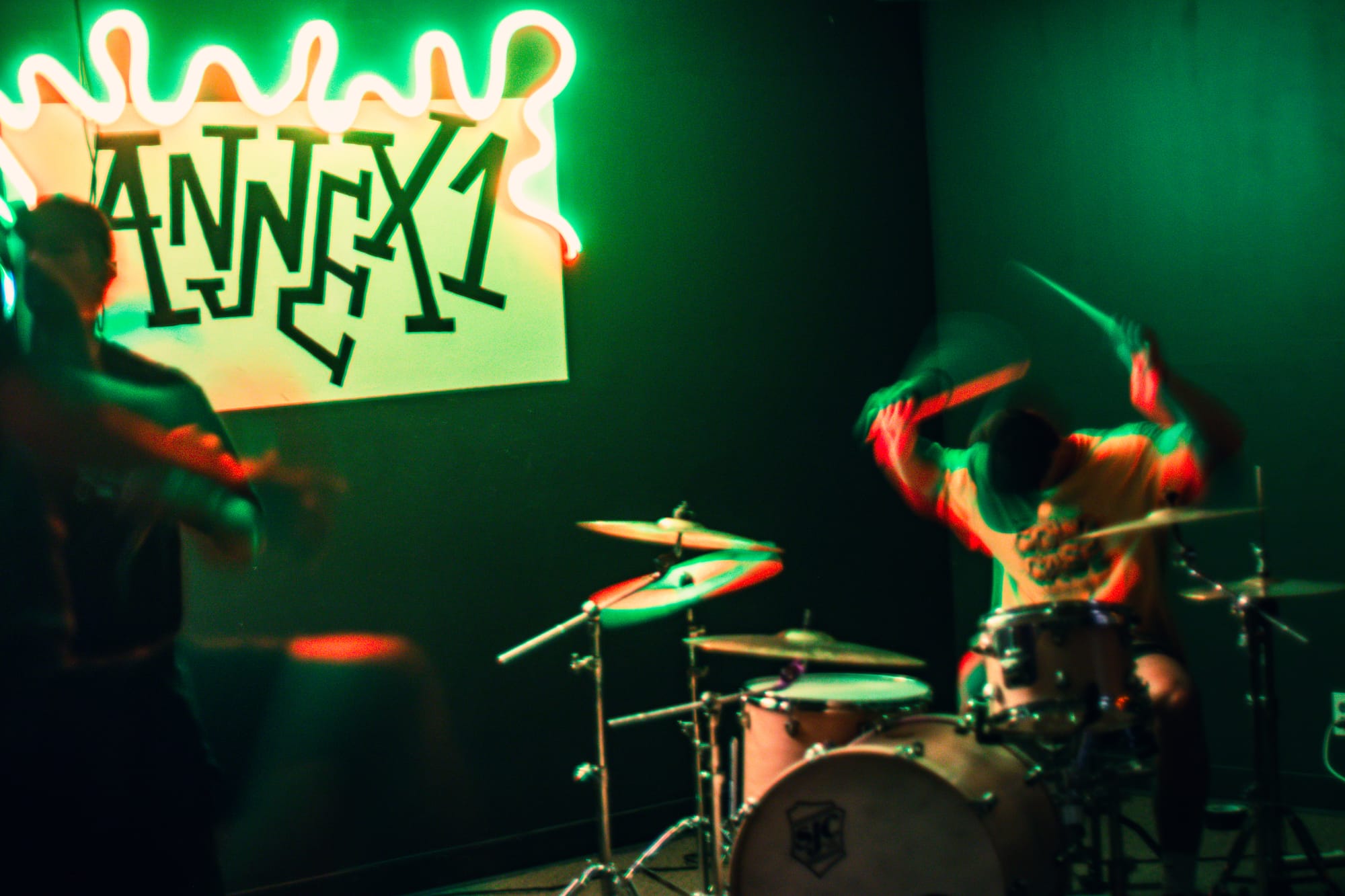
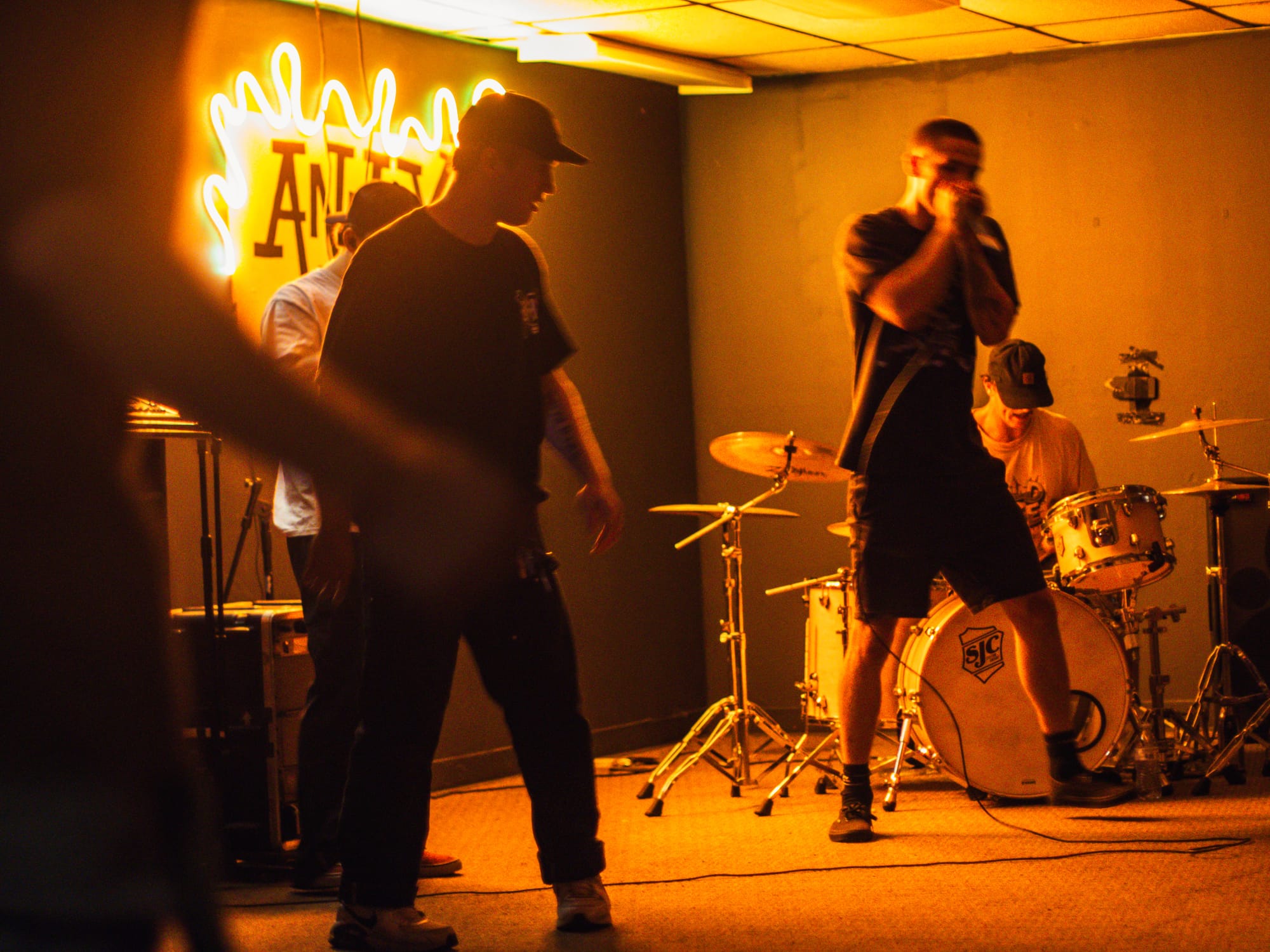
Annex1 has cultivated an all-ages, DIY community rooted in sobriety, consent, and respect for others. Photos by Joseph Purcell for the SHOUT
The Annex1 team has been in varying stages of straight edge and sobriety throughout their lives, and some just commit to sobriety in the Annex1 space. Straight edge, a movement that claimed its name from Minor Threat’s 1981 single “Straight Edge,” is a hardcore punk subculture and a lifestyle choice whose adherents refrain from use of alcohol, recreational drugs, and tobacco. The culture came about in response to perceived excess within the culture during the ‘80s and ‘90s. As younger people tried to gain access to shows, the movement began to move towards creating all-ages environments. Marking the back of their hands with black Xs to signal they were too young to be served alcohol, the black X became a symbol of straight edge, claimed by many far over the age of 21 to this day. The militancy in which some define their straight edge varies, particularly today, over 40 years later, but the sentiment remains the same for many.
“I generally only want to book all-ages shows because it’s the only way you can substantially build the actual scene itself, and the community in that,” Clayton says. For many bands, bars are the most typical option for finding stage time. These shows typically bar anyone under the ages of 21 or 18 from entering. The two reflected on times they’d seen kids gathered in parking lots outside of bars to hear a band, sometimes even peers their own age, that they couldn’t go inside to see.
“Kids can’t inspire each other doing that,” Savannah says. “We became passionate about the sobriety because you can’t maintain anything all-ages without it, it just has to be a sober space. And then it’s even more valuable because it’s a music scene outside of a bar scene, and some people can’t be in a bar environment.”
“We’ve got a good culture. Everyone knows what’s at stake.” — CJ, a member of the Annex1 team
There’s room for everyone, as long as they’re committed to keeping the space sober and accessible.
“There could be people under 18 here experiencing their first underground music for the first time, and we want it to be safe and enjoyable,” Savannah says.
CJ and Joey of Secret World, an underground music booking group, are also a vital part of the Annex1 team. At one of the venue’s first shows, CJ was so transfixed that he actually punched out one of the venue’s fluorescent ceiling lights. After the show, he introduced himself to Clayton and apologized.
“I asked him, do you want me to pay for cool bands, or you want me to pay for repairs?” Clayton recalls.
CJ has remained committed and invested in the space ever since. “I was like, that’s the realest thing I’ve heard in my life.” he says. “This guy’s what I want to be, a booker. (He’s my) well of knowledge, and it all started because I was a jackass my first time meeting him.”
The Annex1 team has found that people are more engaged with the bands when alcohol isn’t the main draw. Their shows reverberate with the undeniable energy and passion of hardcore. On a Saturday night in August, the stage and dance floor became indistinguishable as the band played, and people moshed, thrashed, and danced with carefree joy. A strong culture of consideration has been cultivated at Annex1, and people are protective of the space and one another, conscientious of when their moshing might get too close to the edges where someone might want to simply stand and watch. The ground rules posted by the Annex1 were followed without question, creating a space that truly aligned with the vision they set for it.
“Sober space. Consent is king. Don’t touch anybody. No homophobia, no racism, no transphobia. All the basic, general humanity.” says CJ, who values the space and doesn’t want to see it become labeled as troublesome by the public. “We’ve got a good culture. Everyone knows what’s at stake.”
A member of the local DIY community, Annex1 is currently working with an agent to achieve non-profit status, and has been hosting local meetings to help cultivate the community further, encouraging the next generation of kids being a part of something they can be proud of. The venue also works closely with Safe Streets ICT, an organization working to reduce harm and educate the public about substance use.
“They approached us and have ended up really helping us define what we want our space to be as far as sober space, all ages, just the depth of how beneficial that is for our community. They have the statistics and the knowledge and the language and really opened our eyes,” Savannah says.
Provencio says her life has changed since she stopped drinking. She seeks out more places with sober options, which she feels are getting easier to find. She doesn’t put herself in situations that she doesn’t want to be a part of, but she also doesn’t deprive herself of social interaction. Her physical health has improved, and she finds herself immersed in new activities and communities on a regular basis, living for the present.
“You’re in the moment. You are remembering everything and you’re enjoying it genuinely. And I always talk about the childlike joy. Sobriety is fun. I’ve had more fun in the last three years than I have before. You just appreciate everything,” she says.
“I mean, my life totally switched…why would I go back? Like, why would I go back?”
Sober-friendly social and community groups
Sober Peeps ICT
Connect on Instagram @soberpeepsict for meeting information.
Queer Connect ICT
Coffee meetup every second Saturday at Reverie Coffee Roasters, 2202 E. Douglas Ave. in Wichita. Follow the group on Instagram @queerconnect_ict.
The Phoenix
145 N. Wabash Ave. in Wichita
This local outpost of a national organization is a sober gym and community that offers free entry with 48 hours of sobriety. Learn more on their website.
Sober/all-ages venues
Annex1
2901 W. Taft St. in Wichita
This all-ages DIY space hosts local and touring bands. Attendees make a donation at the door to enter — often $10, but the amount varies. Find more about upcoming shows on Instagram @annex1.ks.diy.
The Lumberyard
203 W. Mulvane St. in Mulvane, Kansas
This free, all-ages space hosts local and touring bands. Learn more on Instagram @lumberyardks.
Monikahouse
1121 Bitting St. in Wichita
This artist exhibition space/all-ages venue hosts local and touring bands in an old house in Riverside, just down the street from R Coffeehouse. Typically, entry to shows is in exchange for a $10 donation. Learn more on the Monikahouse NCLB (No Craft Left Behind) Facebook page.
Girl Hell 1999
This DIY house show series offers a free lineup of local and touring acts. Send a DM on Instagram @girlheck1999 for the address. The venue asks attendees to bring money to tip touring bands.
Bars with spirit-free menus
Nondrinkers don't have to settle for Shirley Temples anymore. Increasingly, bars and restaurants are catering to sober folks with extensive "mocktail" and other nonalcoholic offerings. Here are just a few.
Botanic at Grow Plant Bar
320 S. Market St. Suite 200 in Wichita
Located inside a plant shop, this lounge offers cocktails, mocktails, wine, and coffee. Sample menu item: the Oasis, with Abstinence Cape Citrus, cucumber, mint, lime, and ginger beer. Learn more.
Good Company Taps & Spirits
930 W. Douglas Ave. Suite A
This cocktail bar's Delano location shares space with Pennant Coffee. Both its Delano and Revolutsia outposts feature multiple non-alcoholic options, such as the Spaghett-Me-Not: Heineken 0.0%, lemon juice, and Abstinence n/a blood orange apéritif. Drinks rotate seasonally. (Accessibility note: Good Company's Revolutsia location is located on the shopping mall's second floor, and its elevator is currently out of service.) Learn more.
White Crow Cider Company
1236 E. Waterman St. in Wichita
White Crow describes its taproom as a "laid-back, family friendly environment with no TVs, in which it is easy to visit with friends or play board games." Its tap selections always include at least one NA option. Their Stone Cold Ginger is a semisweet, nonalcoholic cider that carries flavors of stone fruit blend, lime juice, and ginger. Learn more.
Larcher’s Market
3555 E. Douglas Ave. Suite 100 in Wichita
This new eatery in College Hill's Happiness Plaza offers both mocktails and a full coffee bar. Learn more.
Other Wichita favorites mentioned by those interviewed for this story include Vagabond Cafe, 614 W. Douglas Ave.; Milkfloat, 535 W. Douglas Ave. Suite 140; Central Standard Brewing, 156 Greenwood; Tor Brewing, 222 S. Commerce St.; Hopping Gnome, 1719 E. Victor St.; Kirby’s Beer Store, 3227 E. 17th St. N., Apollo Fermentations, 1631 S. Hillside St.; Lava & Tonic, 1716 E. Douglas Ave.; Headshots Bar & Grill, 2120 N. Woodlawn St. Suite 324; R Coffee House, 1144 Bitting St.; Nortons Brewing Company, 125 St. Francis St.; and The Belmont, 3555 E. Douglas Ave.
Kate Nance is a Kansas-born, Wichita-based independent writer covering local music, art, and culture. In previously published work, she has explored topics including public art, creative placemaking, artist perspectives, and displacement.
More from the SHOUT
 The SHOUTKevin Kinder
The SHOUTKevin Kinder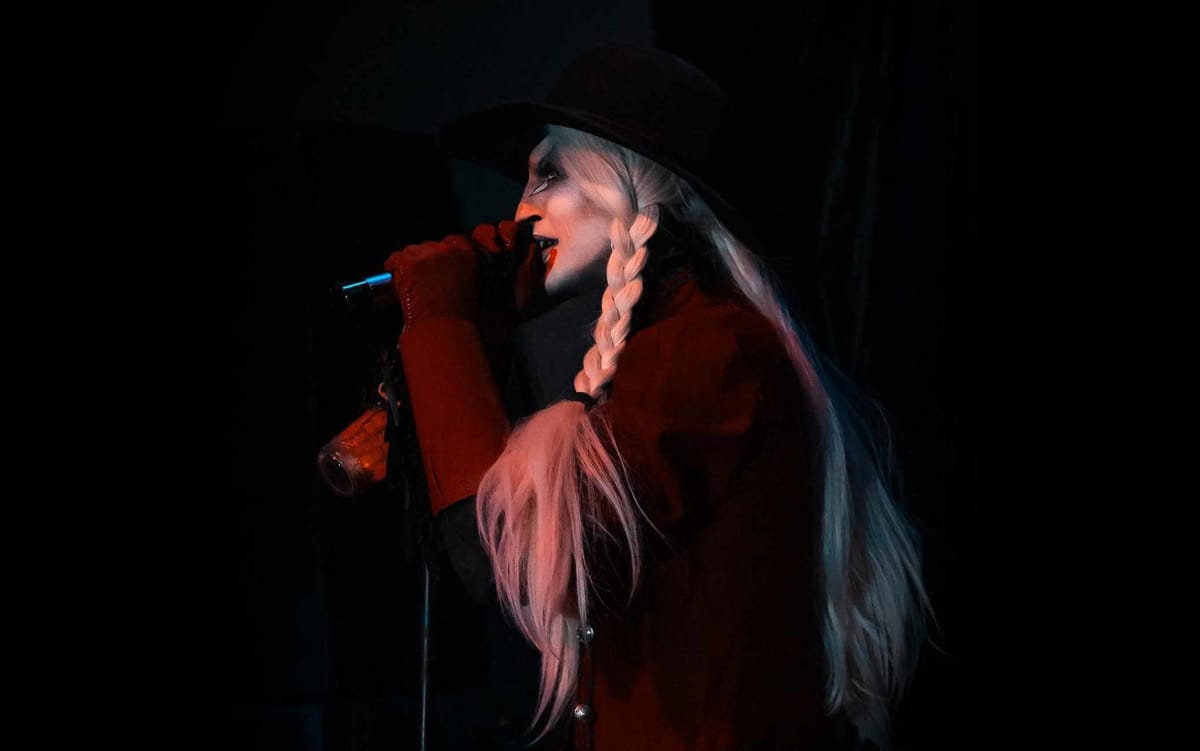
 The SHOUTJeromiah Taylor
The SHOUTJeromiah Taylor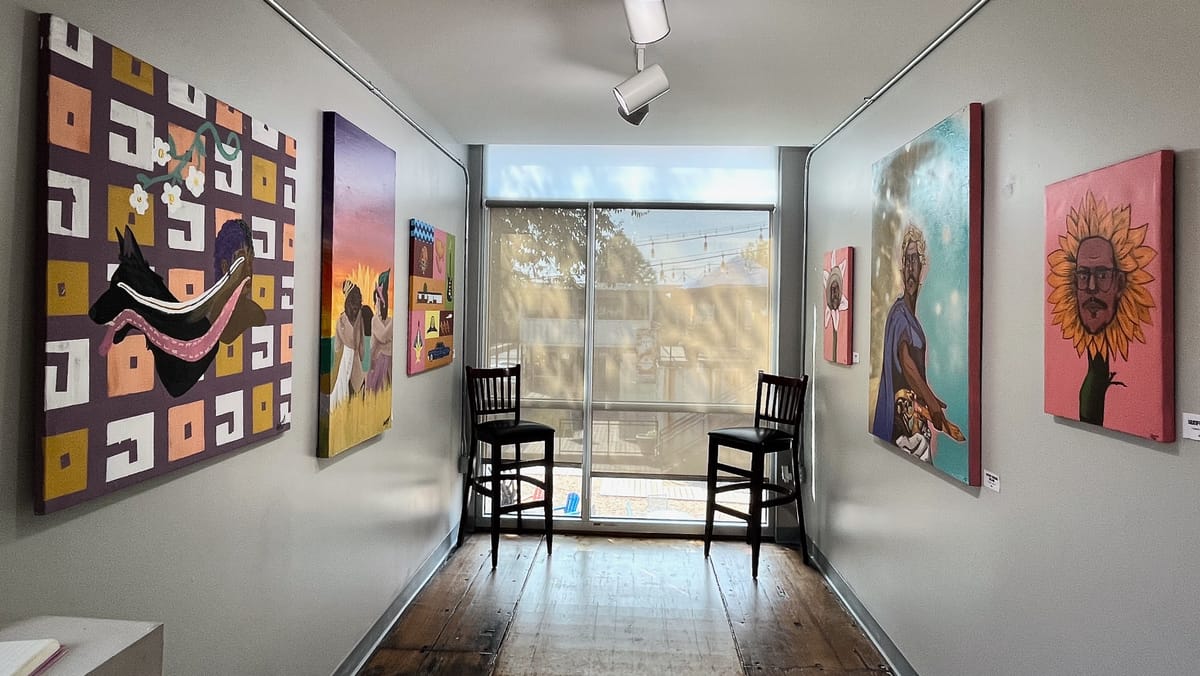
 The SHOUTJacinda Hall
The SHOUTJacinda Hall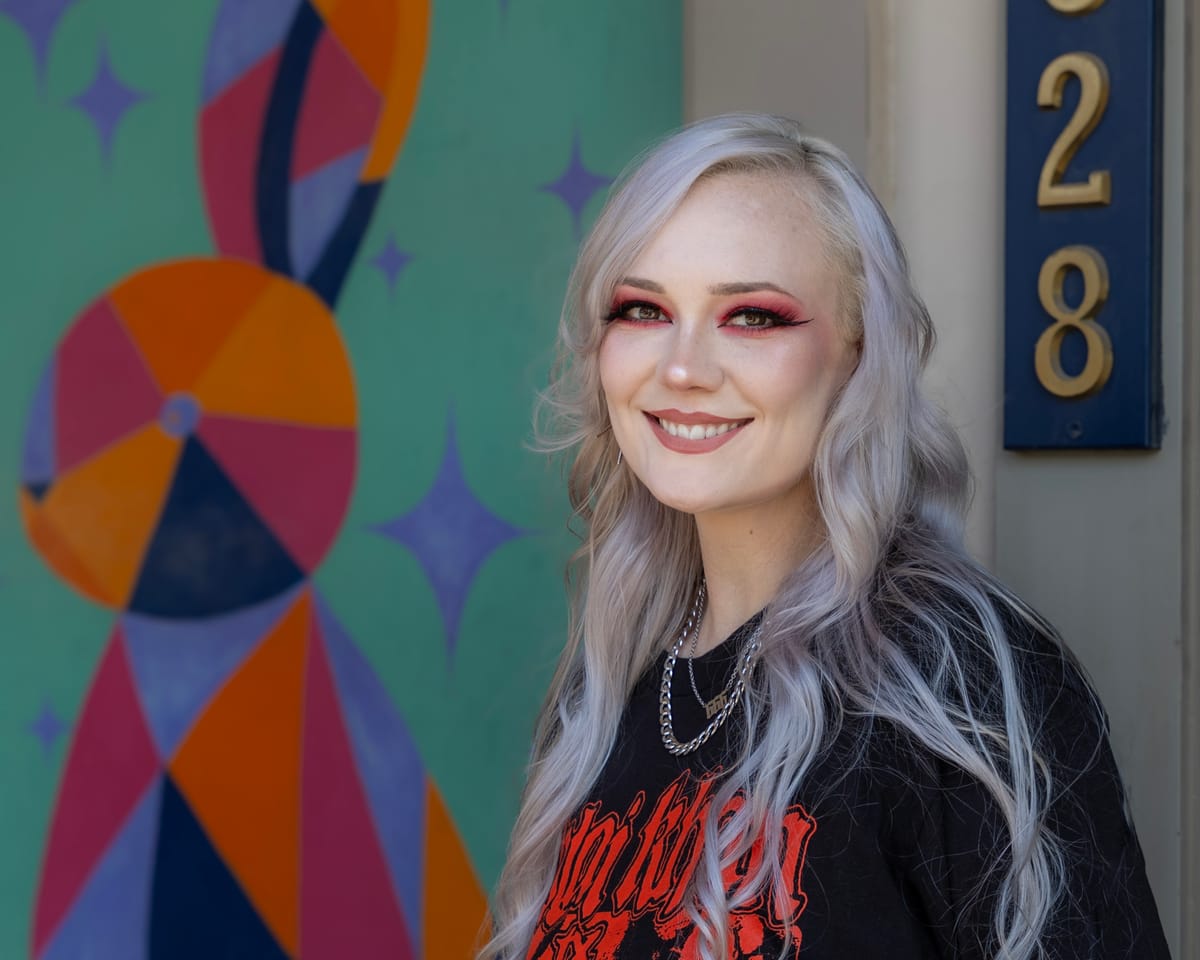
 The SHOUTMasara Al-Sharieh
The SHOUTMasara Al-Sharieh